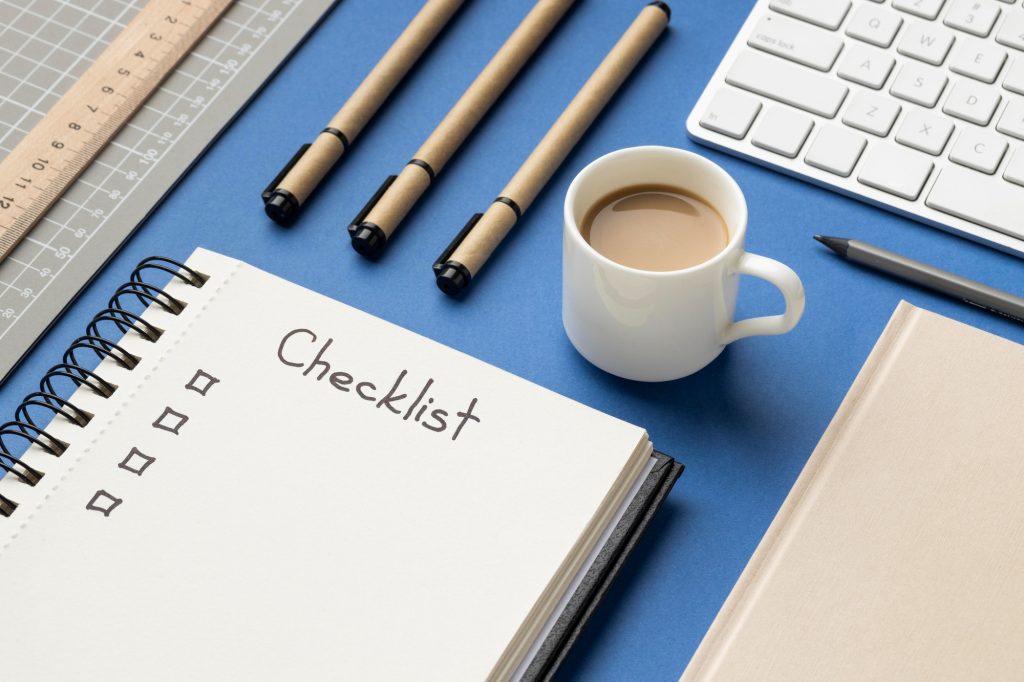The Closing Process: What to Expect
It’s not Over until They Say it’s Over.
There is a sense of relief that comes with signing a purchase agreement when you are buying or selling a house. You deserve to celebrate the beginning of a new chapter in your life. A sale isn’t fully complete until it’s officially closed, even when you’ve reached an agreement with someone.
Closing on a home is almost as complicated as going under contract when each of these steps is taken together. Throughout this guide, we’ll explain the home closing process in detail so that you can stay on top of things. A successful close depends on each step, even though some may seem more crucial than others.
Home Closing Expectations
The final home closing usually takes several weeks after a purchase agreement is signed. Initially, your closing date may seem time-consuming, but there’s a good reason for it – most, if not all, of those days will be needed to complete your to-do list! It depends on whether you’re a buyer or seller what specific tasks you’ll need to perform.

The seller's tasks
Take care of home repairs:
Home inspectors are preferred by most buyers. It will be the inspector’s responsibility to determine whether there are any material defects that need to be addressed before closing. A price adjustment may be required if there are any repairs to be made.
Hire a closing agent:
For your closing, you may need to hire an attorney or a title insurance company, depending on your state’s customs. Mortgage lenders require title insurance policies for approval of loans, and the closing will also be performed by a title company if your buyer is getting a mortgage.
Keep track of the buyer’s progress:
The official loan application process is usually sped up when the buyer has already been approved for a mortgage. Monitor the progress of the buyer’s home loan, whether they have been approved or not, to make sure everything is on track.
Plan your move:
When the contract is signed, you should begin preparing for the physical move. Make sure to pack, choose a moving company, and rent a storage space if necessary so you won’t have to rush when closing day arrives.
The buyer's tasks
Mortgage application:
An offer on a property should be accompanied by mortgage approval. A formal loan application must be made once the contract has been accepted. After signing the contract, you need to apply for a mortgage as soon as possible since the approval process can take several weeks.
Consult a home inspector:
An appraisal will be completed by the mortgage lender. Home inspections are your responsibility. As soon as you sign the contract, you should schedule an inspection with a home inspector. There is usually a time limit for a home inspection.
Keep in touch with your mortgage lender:
The closing process would be quick in a perfect world. Obviously, that doesn’t always happen in real life. Follow up regularly with your lender to ensure you’re on track for closing and supply all requested documentation as soon as possible.

Prepare your closing funds:
Closing fees will be estimated by the lender, including how much cash you’ll need at closing. It is important to have sufficient funds in a single bank account to cover closing costs. Most often, certified funds or a cashier’s check will be required, so you should have all your money in one place.
Plan your move:
Buyers and sellers both go through this process. In order to settle into your new home as soon as possible, you should start packing and organizing your move as soon as you sign a purchase agreement.

Home Closing Speed: How Fast Can It Be?
A typical contract signing and closing will take about 30 days in most markets. There can be a backlog of loans, appraisals, home inspections, and title agents if the housing market is particularly busy. It might take 45 to 60 days to close a home if that’s the case.
When it comes to closing day, it usually takes about an hour. Getting clarifications about the documents can take a long time if there are questions about them.
Closings usually take place simultaneously for the buyer and seller. In some cases, however, there are exceptions. There may be a difference in signing times between buyers and sellers if they live in different states.
Who pays closing costs and how much do they cost?
Each buyer and seller has their own closing costs. Typically, the buyer is responsible for most costs. A mortgage or deed of trust requires the buyer to pay lender fees. A lender or closing agent should be able to provide you with an estimate of closing costs whether you are the buyer or seller. We have outlined what you can expect below.
Closing costs for buyers
There is quite a bit to consider when it comes to fees, but don’t be alarmed. Your lender will group the majority together. In general, closing costs for a buyer are typically 2% to 3% of the new loan amount. Listed below are the most commonly charged fees.
The origination fee for a loan:
The lender receives 1% or a fraction of 1% of the loan amount as a fee.
Discount fee on loans:
In order to reduce the interest rate on the loan, the buyer must pay an optional fee to the lender. A 1% fee, for instance, may reduce the interest rate by 1/8 of a point.
Fee for appraisal:
There is generally a $300-500 cost associated with this.
Fees for credit reports:
For third-party credit reports, lenders charge between $10 and $50.
Fees charged by lenders for inspections:
Lenders will send an inspector to verify that repairs have been completed if the property needs them. Inspecting a property can cost $50 – $200.
The tax service fee:
To determine that all previous taxes on that property have been paid, a third-party service charges a fee of $25 – $75.
Fees for wire transfers:
Bank wire transfers will be used to receive funds for the closing of your loan. It usually costs between $15 and $35.
The closing or attorney’s fee:
In exchange for the services provided, the attorney or title company may charge a fee. Closing agents can charge anything from $300 to $1,000 depending on where you live and what they do for you.
Fee for document preparation:
An attorney or title company may charge this fee as part of their charge for handling your loan closing.
The recording fee:
A county courthouse is required to record your mortgage documents. A county or municipality may charge fees for recording documents depending on where they are kept.
Taxes and stamps imposed by the state, county, or municipality:
New mortgages are taxed in many jurisdictions. A percentage of the loan amount will be deducted at closing for these fees. There are a variety of prices in the range of a few dollars to a few thousand dollars.
Flood certification:
In order to determine whether the property is located in a flood zone, lenders obtain a flood certification. About $20 is typically charged for certification.
Inspection of pests:
A pest inspection may be required by the lender to make sure there are no infestations or damage related to pests on the property. Fees usually range from $50 to $100.
Postage or courier fees:
Your closing costs will include the costs of delivering packages, paperwork, certified mail and registered mail. It depends on how much special handling is required during the closing process whether these fees are significant or minor.
The title search:
The title company performs this process to determine whether any unrecorded liens have been filed against the property. In most cases, it is between $200 and $400.
The title insurance mortgage policy:
Buyers must purchase this policy as a condition of their mortgage. It provides coverage against liens that may have been missed during the title search. A policy like this will cost several hundred dollars.
The owner’s title insurance policy:
The charge is optional. Unrecorded liens are protected by a mortgage title policy. An owner’s title policy, on the other hand, will protect you for the whole period of time you own the property. Definitely worth checking out. Costs typically range from $30 to $200. Property lines are usually only disputed when it is required. It can cost up to $300 if it is needed.
As well as funds for taxes and insurance, the buyer needs to set up escrow. A property’s taxes and insurance determine exactly how much it costs. A homeowner’s insurance policy must be paid up for one year and 2 months’ premiums must also be collected in most locations.
Closing costs for sellers
In contrast to buyers, sellers have a shorter list of closing costs. As expenses vary widely by state, it’s hard to estimate the overall cost. Costs typically include the following:
- Municipal, county, or state transfer taxes:
A percentage of the sale price is usually applied to these taxes in most jurisdictions. Locations will differ.
- The seller’s attorney: :
For representing you in a transaction, your attorney will generally charge $200 – $400.
- Miscellaneous fees:
It is possible that the seller will be charged a small fee for couriers or recordings.
Another set of costs that the seller may have to cover depends on local custom, and that would be seller-paid closing costs. In order to entice the buyer to purchase the property, the seller may agree to pay all or part of the buyer’s closing costs. If you want to pay a flat dollar amount or a percentage of the mortgage amount, like 3%, you can do so.

Closing Costs: When Are They Due?
Following our listing and explanation of closing costs, you might be wondering when to pay them. Upon signing your final loan documents, you are required to pay closing costs. It is usually standard practice to pay closing costs in-hand with a cashier’s check or by wiring the funds to the escrow account the same day. Consider the best payment method for each party, and keep in mind that personal checks are probably not an acceptable payment method.
Before closing, here are some things you shouldn't do
Your closing day is approaching, which means you have a lot to do. If you want to make sure everything stays on track, there are certain activities you should avoid as well.
Mistakes to avoid when buying
- Neglecting requests from lenders:
You may delay the closing of your mortgage application if you do not respond promptly to your lender’s requests for additional information. Keep an eye on the loan process by responding quickly to your lender and checking in regularly.
- A new debt is incurred:
In the event that you sign a contract, you should not borrow money from anyone else. Just before closing, the lender will pull your credit report again. New loans can result in your approval being withdrawn if you have tight loan qualifications to begin with.
- Transferring money:
It is important for lenders to make things simple when it comes to cash to close. There should be one bank account where all funds needed for closing are sitting doing absolutely nothing until the deal is closed. You might be suspected of taking out a new loan if you make large transfers.
- Oversharing information:
It is possible to have problems with your closing if you overshare or accidentally allow an offensive comment to slide. Keep a straight face and don’t say anything inappropriate. Do not mention how you just quit your job, how you are looking forward to renovating the house, or how you got a good deal on the house.
Mistakes to avoid when selling
- Not paying attention to the buyer’s mortgage application:
It’s important that everything is on track if your buyer needs a mortgage. It is possible to delay or even cancel a closing due to problems or delays.
- A refusal to cooperate with the appraiser or inspector:
Inspections and appraisals are required for most home sales. Cooperation is the key to getting them done as quickly as possible.
- Making the sale price more expensive or refusing to make repairs as required:
The results of the inspection and appraisal may require you to take action. A seller who refuses to remedy or compensate for needed repairs will sink a closing faster than anything else.
Closing Day: What To Bring
Both buyers and sellers must bring everything that is required on closing day, even if the list of items they bring differs. Those who are buying must present a photo ID, all outstanding papers for the title company, and a check for any costs that have not been deducted. For closing costs and repair credits, the seller must also bring a photo ID and a cashier’s check. Bring your garage door opener, keys, and codes as well. If the closing agent requires documents and fees, bring your checkbook.
Closing Day Expectations
It is important that each party arrives early at the closing office on closing day. Buyers, sellers, closing agents, attorneys, and mortgage lenders might all be present at your closing depending on where you live.
A closing should be no more than a signing ceremony if it has been properly prepared in advance. The process can be completed in about an hour and there are no surprises that could delay things. Upon signing the sale contract, both buyer and seller should have that as their goal and what they are preparing for.

If you close a new home, how long will it take you to move in?
It is possible that you will be able to move into your new home immediately after your closing is complete. In the case of a long-term stay, the move-in date will be included in the contract if the seller requests it.
Either way, you’re just a few steps from moving into your new home as soon as closing is completed! Despite the stress of this process, think about the positive aspects, such as your new home. Your efforts will be rewarded once you become a homeowner!